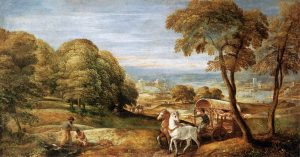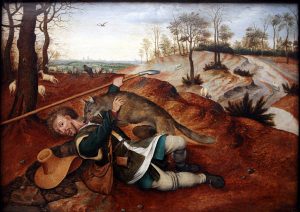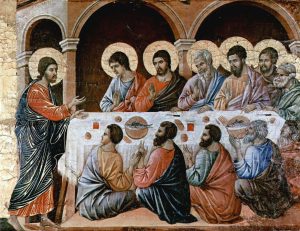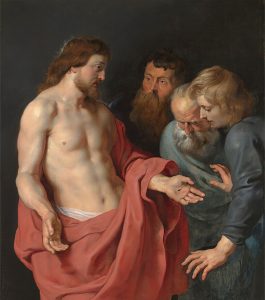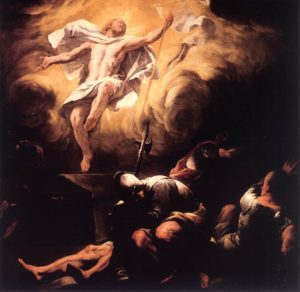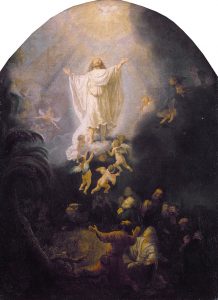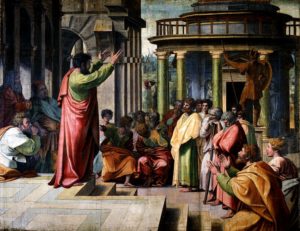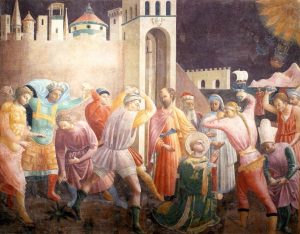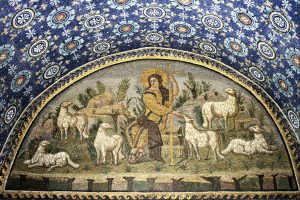Thoughts on Sunday’s Lessons for May 9, 2021
First Reading: Acts 10:44-48
Sunday’s Lectionary readings continue building on the theme that we heard last Sunday: God’s love pours out on all the world, and we are called to love each other as God loves us.
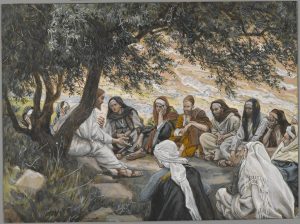
The Exhortation to the Apostles (1886-1894), opaque watercolor on graphite over gray wove paper by James Tissot (1836-1902). Brooklyn Museum. (Click image to enlarge.)
The first reading, from the Acts of the Apostles, marks a key turning point in Luke’s account of the early church: The joyful reaction of a Gentile crowd to Peter’s teaching reveals to the apostles that the Holy Spirit comes to everyone: not only to Jewish Christians but to Gentiles too. Peter asks, “Can anyone withhold the water for baptizing these people who have received the Holy Spirit just as we have?” The answer is clear: Baptism is for all. As we heard in last week’s reading about the Ethiopian eunuch, “Here is water. What is to prevent it?”
Psalm: Psalm 98
Psalm 98 – perhaps originally a song of praise for God’s support after a battle – abounds with triumphant spirit. Its verses ring out resounding faith in God’s power to win victory for Israel over all the earth. This is an occasion for rejoicing. Not only the people but all earth – the seas, the rivers and the hills – lift up their voices and sing. Consistent with the theme that runs through the readings for the day, it declares that God’s victory is not for Israel alone. God will judge not only Israel but all Earth’s people with mercy and equity.
Second Reading: 1 John 5:1-6
Both this reading and the Gospel assigned for Sunday continue where last week’s readings left off, and both continue with similar themes. Last week we were told to love one another as Jesus loves us. This week we are told in the First Letter of John that the way to love God – to become a child of God – is by obeying God’s commandments, a direction that follows the Jewish tradition of love for God’s law and teaching. In words that echo the triumphant sentiment of Psalm 98, we hear that our faith in Jesus Christ as the Son of God brings God’s victory into the world.
Gospel: John 15:9-17
The Gospels according to Mark, Matthew and Luke all tell us that Jesus taught – in the spirit of the essential Jewish prayer, the Shema – that the greatest commandment is to love God with all our heart and soul and strength and mind. Now in John’s Gospel Jesus shows us how to do that: “This is my commandment, that you love one another as I have loved you. No one has greater love than this, to lay down one’s life for one’s friends.” Through our faith, the Gospel tells us, we go out and bear fruit, like the branches of the vine that were pruned so they would bear more. Through our faith we love one another as God loves us.

